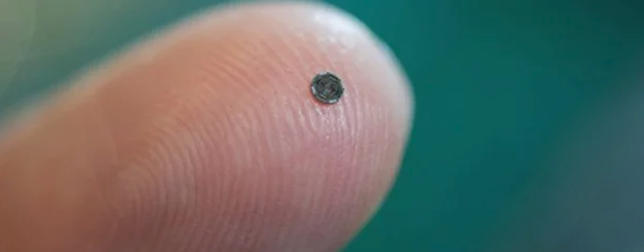Researchers from the Purdue University have developed an electronic chip that may provide improved support for people affected by brain and central nervous system disorders. Hundreds of millions of people worldwide are affected by neurological disorders according to World Health Organization (WHO).
Read more Michael J. Fox Foundation’s Collaboration with Verily Aims to Deepen Understanding of Parkinson’s
The researchers created an electronic chip that can gather electric signals from a number of nerve endings at the same time and then wirelessly transmit them. The device doesn’t need any on-board battery to operate because an on-chip antenna provides energy.
Lead researcher Saeed Mohammadi, an associate professor in Purdue’s School of Electrical and Computer Engineering, said this invention will help conduct even bigger research into understanding the brain and central nervous system, various neural diseases and neuro-prosthetics. “Our breakthrough is that this chip is very small, about the size of a piece of dust, and can be made flexible for future brain implant applications,” he said.
The tiny electronic chip, which the researchers say is about the size of a piece of dust, integrates with neural sensors where it wirelessly transmits the brain signals to a computer using a remotely powered electronic system. The system can help people with neural deficiencies and those with severed nerves.
“The main challenges are to operate such a wireless neural interface system with a small and flexible chip at very low power and yet high data rate,” Mohammadi said. “We need a high data rate to be able to read signals from thousands of neurons using a single implant chip. At the same time, we need to operate the system at very low power for safety and size reasons.”
The researchers created the innovative low-power circuit design using a regular electronic chip they received from a semiconductor manufacturing company which they then processed to carve out the microelectrodes for the neural interface system.
“We can perhaps provide a technology that is more bio-compatible with brain tissues and can be implanted in the human brain or at nerve endings with much better success rate,” Mohammadi said.
The research team worked along with the Purdue Office of Technology Commercialization on the innovation. The researchers are seeking investors and industrial partners for the technology.
Read more OHSU Clinical Trial Seeks to Revolutionize Concussion Treatment With the Help of Wearable Device
About Purdue Office of Technology Commercialization
The Purdue Office of Technology Commercialization operates one of the most comprehensive technology transfer programs among leading research universities in the U.S. The office helps to support the economic development initiatives and academic activities of Purdue University. The office is managed by the Purdue Research Foundation, which received the 2016 Innovation and Economic Prosperity Universities Award for Innovation from the Association of Public and Land-grant Universities.













